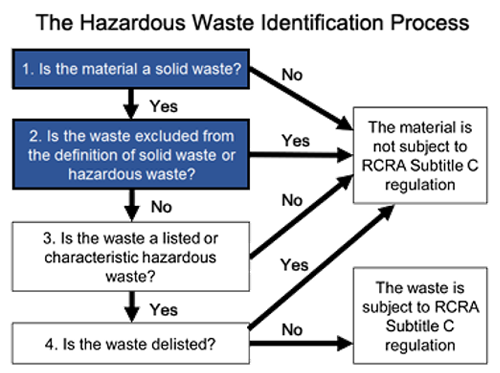Hazardous waste management is a critical concern for countless businesses. From small automotive shops to large factories, properly disposing of potentially harmful waste is essential for employee safety, environmental protection, and legal compliance. Without it, there will always be a risk of dangerous spills, toxic leaks, exposure to disease, injuries, fire, and catastrophic explosions. And that doesn’t include the failed inspections and additional business expenses. Here’s what you need to know about why hazardous waste management is important for your business.
What Defines Hazardous Waste?
To first understand the importance of hazardous waste management, it’s necessary to look at the different types of hazardous waste. The Environmental Protection Agency (EPA) recognizes several different kinds of hazardous material by separating them into four general categories. Each of these categories represents a different threat to human health and the environment. From the most common solvents to the most dangerous chemical substances, it’s important to realize the risks of improper management.
The four categories are:
- Corrosive: Acid is the most common corrosive material. This category includes anything that has potential to chemically destroy tissue or metal.
- Ignitable: An ignitable waste is anything that can cause a fire in specific conditions. The EPA includes liquids with flash points below 60 degrees Celsius in this category. Compressed gas and oxidizers are examples.
- Reactivity: A substance is considered reactive if it could explode or “undergo violent reactions” if put under certain conditions.
- Toxicity: The EPA considers a hazardous waste to be toxic if it causes harm when it’s ingested or absorbed. This includes materials that could cause someone to get sick and materials that pollute groundwater or harm the environment. Toxic waste and hazardous waste are often used interchangeably, but this isn’t always accurate. The easiest way to think about hazardous versus toxic is that all toxic waste is hazardous, but not all hazardous waste is toxic.
When identifying a material, there is a four-step process to get you started. The EPA created this process to facilitate proper hazardous waste management and educate waste generators on what exactly they’re dealing with. The flow chart below takes you through each step. For a more detailed description, visit the EPA’s website.
Consequences of Improper Hazardous Waste Management
Cutting corners with hazardous waste management has consequences for employees, the environment, and the business as a whole. When things aren’t done according to state and federal regulations, there is always risk. First, the business will start failing inspections during routine visits by official organizations like the EPA and OSHA. Those fines will be costly, and the business will lose even more money from a tainted reputation and disrupted work schedule. If it turns into a habit, the business could be shut down.
Those added costs will seem minor if improper waste management leads to an accident or incident. Spills, fires, injuries, and even deaths are all possible. A massive explosion at a chemical warehouse in China killed 173 people in 2015. That tragedy could have been avoided if ignitable compounds within the warehouse had been stored and disposed of properly. The owner of that company was given a suspended death sentence for his negligence.
You don’t need to own a large chemical warehouse for hazardous materials to become a risk. Even small businesses are ethically and legally responsible for how they manage these potentially dangerous substances. While understanding and adhering to all legal requirements can seem overwhelming, a professional and experienced hazardous waste management company will ensure your entire business is in compliance.
Hayward Environmental Consulting offers businesses a fast and efficient option for managing their hazardous waste. From pickup to transport and disposal, we follow strict protocols to protect our clients, their employees and the environment. Contact us today for a no-obligation quote.


